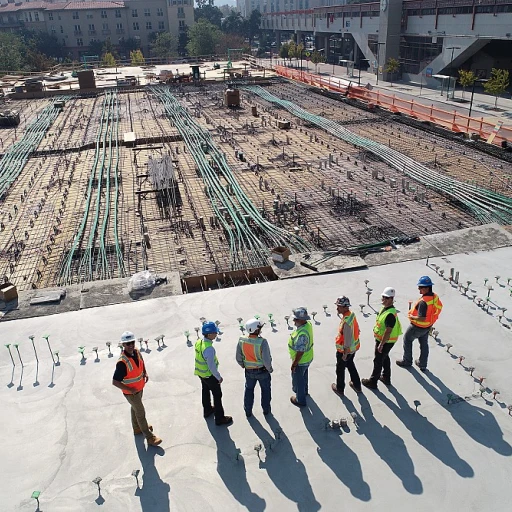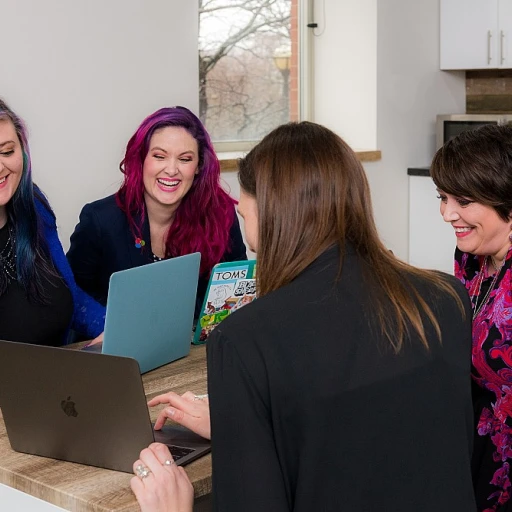Understanding Common HR Interview Questions
Decoding Frequent HR Interview Questions
Navigating the world of HR interviews requires a good understanding of the questions typically asked. Employers often seek candidates who not only possess the right skills but also align with the company's values and culture. Let's delve into the most common types of questions to help you prepare effectively.- Behavioral Questions: These questions aim to understand how you have handled situations in the past. They generally start with phrases like "Tell me about a time when…" or "Give an example of…". Your responses provide insight into your personality, skills, and work style.
- Situational Questions: Unlike behavioral questions, situational questions focus on hypothetical scenarios. They assess your problem-solving capabilities and the processes you would use to tackle challenges.
- Company Culture Alignment: Employers are keen on hiring individuals whose values resonate with their organizational culture. You'll likely face questions aimed at gauging your knowledge of the company's mission, values, and future direction.
- Role-Specific Inquiries: These questions target your abilities and experience related to the position you are applying for. Demonstrating your knowledge and expertise in relation to the job description is crucial.
Crafting Your Personal Story
Sharing Your Unique Journey
When you're in an HR interview, it's not just your skills and qualifications that interest the interviewer—it's also your personal story. How you articulate your career journey can make a huge difference in setting you apart from other candidates. Crafting a compelling narrative helps paint a picture of who you are beyond your resume.
Consider these tips to effectively share your personal career story:
- Identify Key Milestones: Reflect on pivotal moments in your career that have had a significant impact on your professional path. Whether it's a job change, a project you led, or a unique challenge you overcame, these milestones showcase your growth and learning.
- Highlight Your Values and Passion: When discussing your career journey, weave in what drives and motivates you. This is a chance to reveal your enthusiasm for your profession and how it aligns with the company's mission and values.
- Be Authentic: Honesty is key. While it's important to be positive, don't shy away from discussing challenges or failures. Instead, focus on what you learned and how you've applied those lessons moving forward.
- Create a Cohesive Story: Your career journey should read like a well-structured narrative, making logical connections between each stage of your career and why they were important.
For further insights into mastering these skills, visit our resource on what you need to know about mastering HR interview skills.
Sample Answers for Behavioral Questions
Crafting Answers for Behavioral Questions
When it comes to HR interviews, behavioral questions are a common component designed to assess how you have handled situations in the past. These questions often start with phrases like "Tell me about a time when..." or "Describe a situation where you...". The best way to tackle these questions is by using the STAR method: Situation, Task, Action, and Result. This method ensures that you structure your responses effectively, giving a clear narrative that demonstrates your skills and abilities. For instance, if asked about a conflict with a coworker, you might say:- Situation: "In my previous role at Company X, there was a situation where my teammate and I had differing opinions on a project's direction."
- Task: "It was essential to align our goals to meet the project's tight deadline."
- Action: "I initiated a private meeting where we openly discussed our perspectives and found common ground by outlining a unified strategy for the project."
- Result: "This approach not only improved our working relationship but also led to the successful completion of the project two weeks ahead of schedule."
Demonstrating Problem-Solving Abilities
Highlighting Critical Thinking and Solutions
When it comes to acing HR interviews, showcasing your problem-solving abilities is crucial. Employers are keen on understanding how you approach challenges, make decisions, and find solutions that benefit both the company and its customers. It's important to use specific examples to illustrate your problem-solving skills effectively.- Describe the Problem: Begin by outlining the specific challenge you faced. Briefly explain the context and make sure your audience understands the severity or importance of the issue.
- Explain the Action Taken: Clearly describe the steps you took to address the problem. Discuss the strategies you employed, why you chose them, and how your thought process guided your actions.
- Highlight Positive Outcomes: Conclude by sharing the successful results you achieved. Quantify your success if possible — whether it's cost reductions, time savings, or an increase in client satisfaction. This demonstrates the tangible impact of your solutions.
Aligning with Company Culture
Showcasing Cultural Compatibility
When approaching the topic of cultural alignment in HR interviews, it's essential to have a good understanding of the company's values and mission. Interviewers are keen to assess if candidates not only possess the technical skills required for the role but also fit well within the organizational culture. Here's how you can prepare to demonstrate this alignment:- Research the Company: Understanding a company's culture requires thorough research. Look into their mission statements, values, recent news, and employee reviews. Knowing the company inside out allows you to tailor your answers and highlight relevant experiences that match their cultural ideals.
- Reflect on Your Values: Before the interview, take some time to reflect on your personal values and work style. Consider past experiences where you have thrived and what company cultures have suited you best. This self-awareness will help you articulate why you align with potential employers effectively.
- Use Examples: Prepare stories from your past roles showcasing when you successfully adapted to or enhanced a company culture. Whether it's co-leading a diversity initiative or being part of a team that embraced innovation, concrete examples can illustrate your capability to fit into and contribute positively to their environment.
- Ask Culture Relating Questions: Remember, an interview is also your chance to assess the company. Prepare questions that give you insight into their work environment and culture, showing your genuine interest and ensuring it's the right fit for both parties involved.
Preparing for Technical and Role-Specific Questions
Anticipating Role-Specific and Technical Questions
When preparing for HR interviews, it's crucial to consider the possibility of role-specific and technical questions. These allow the interviewer to assess if you have the practical skills and knowledge required for the position. Here’s how to address them effectively:- Research the Role: Before your interview, thoroughly review the job description. Note down key responsibilities and required skills, as they often give clues about the technical questions that you might face. This step ties back to crafting responses that align with company culture, as understanding the role helps identify how your skills and values mesh with the company's objectives.
- Brush Up on Technical Skills: Depending on your job field, revisit fundamental concepts or tools relevant to your role. Be ready to discuss how you have previously applied these skills in a professional setting, which ties into crafting your personal story with concrete examples.
- Practice Problem-Solving Scenarios: Many technical questions are designed to assess your problem-solving ability. Utilize your experience to offer structured responses, similar to those you've developed for behavioral questions. Think of past projects or tasks where you overcame challenges using your specific skills.
- Mock Interviews with Industry Peers: If possible, conduct practice interviews focusing on technical questions with colleagues or mentors from your industry. This can provide valuable feedback and boost your confidence.







